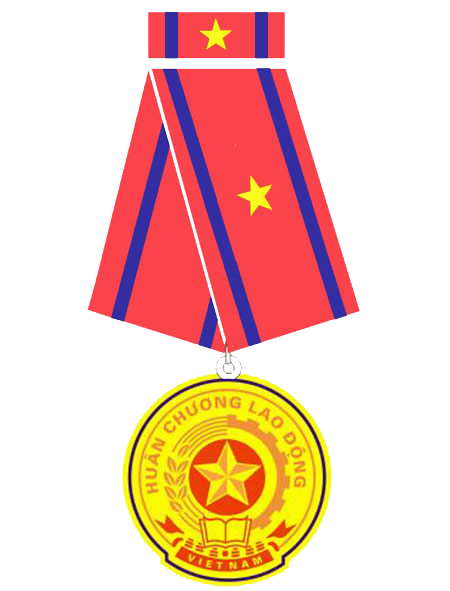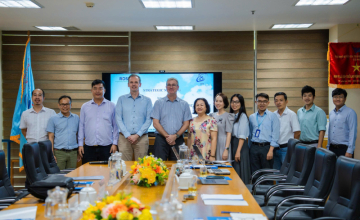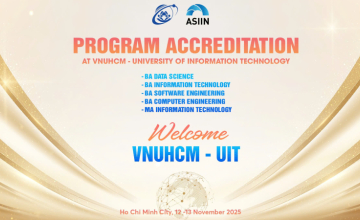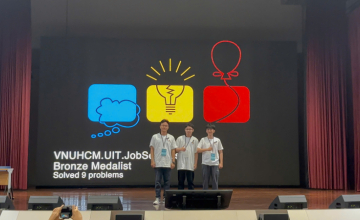Having chosen the field of Information Technology early on when it was still a relatively new area in Vietnam, Assoc. Prof. Dr. Nguyen Luu Thuy Ngan has achieved success, standing out as a rare gem in the current landscape of information technology science. She currently serves as the Vice President of University of Information Technology (UIT) and a member of the Executive Board of the Language Processing and Vietnamese Speech Club under the Vietnam Informatics Association.
Assoc. Prof. Dr. Nguyen Luu Thuy Ngan has over 20 years of experience in the education sector, holding various positions such as assistant, lecturer, Head of the Training Department, and since November 2020, Vice President of UIT. Her research areas focus on developing text processing techniques and applying text processing in various fields.
On the occasion of International Women's Day (March 8), the Science Magazine had a conversation with Assoc. Prof. Dr. Nguyen Luu Thuy Ngan - Vice President of University of Information Technology, Ho Chi Minh City.
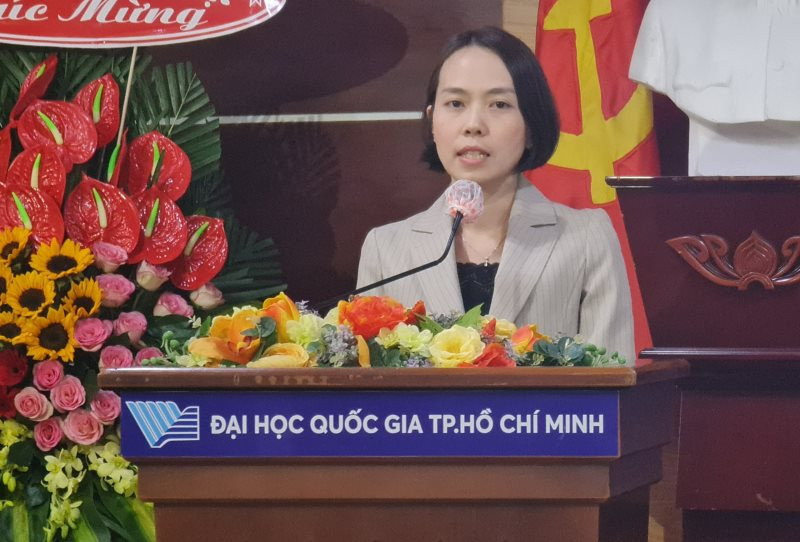
Assoc. Prof. Dr. Nguyen Luu Thuy Ngan - Vice President of University of Information Technology, Ho Chi Minh City.
Hello Assoc. Prof. Dr. Nguyen Luu Thuy Ngan! Can you share how you got into the field of Information Technology?
Assoc. Prof. Dr. Nguyen Luu Thuy Ngan: When I was in high school at Lương Thế Vinh High School (Đồng Nai province), my family guided me towards studying Computer Science as it was a new field in Vietnam at that time. During my studies, I found Computer Science interesting and saw its practical applications in the future, so I decided to pursue a career in Information Technology.
As a female student majoring in IT at university, did you face any difficulties?
In my university class, female students accounted for about 1/5 of the total. Since I had studied Mathematics from secondary school and specialized in Computer Science in high school, the gender ratio was not a significant challenge for me. The only time I felt a bit concerned was when my classmates elected me as the class president of a class with 240 students. I worried about whether I could perform well in that role. Fortunately, everything turned out fine.
After university, you received a scholarship and had a turning point in your journey by studying in Japan. Can you share more about that?
Yes, that's correct! I received a scholarship sponsored by Panasonic in 2005. Initially, this scholarship was for young assistant professors and researchers from some Vietnamese universities. We had to pass three rounds of selection: application review, first-round interview on expertise, and second-round interview. In the end, I was one of the two selected candidates.
I've always had a curious nature since I was a child, so I dreamed of studying abroad to enhance my research skills and satisfy my curiosity about Japan's culture and people. The Panasonic scholarship was a turning point that helped me realize this dream at the end of March 2005.
What made you choose Japan for your studies abroad instead of another country?
In grade 11, during my Geography class, I learned about the miraculous development of Japanese society and economy. I was very interested in understanding why this happened and desired to go to Japan one day to discover the "secrets" behind it all. This dream became a motivation for me to study harder.
During your time studying in Japan, what challenges did you encounter?
Language was the biggest barrier for me at that time. I couldn't communicate with anyone in the laboratory for the first six months. To overcome this, besides taking Japanese language classes for international students at University, I also attended Japanese language classes for foreigners twice a week in the Suginami ward, Tokyo - where I lived. I also had lunch and dinner with people in the laboratory and participated in volunteer activities on weekends. It took me a year to be able to communicate in Japanese. It was an interesting experience that I will never forget.
In addition to the language barrier, I initially faced some challenges related to climate and culture. I also misunderstood the Japanese way of communication because, in some cases, they might not directly say "no" but express it differently. As for the weather, I was used to the warm climate in Ho Chi Minh City throughout the year, so it took some time to adjust to the cold winter in Japan.
Did you discover the "secrets" behind Japan's miraculous economic and social development?
I believe I found a crucial secret behind Japan's miraculous economic and social development, which is the effort of its people. They behave with great respect, care for those around them, collaborate well in work, and peacefully solve problems.
Upon returning to Vietnam to work, how did you apply the knowledge and experience gained during your study abroad?
I utilized my research experience to organize research groups, mentor young researchers, develop research proposals, and implement research projects. These experiences also helped me in my research activities. Additionally, I learned a bit about the Japanese working style, such as being polite, dedicated, collaborative, and team-oriented.
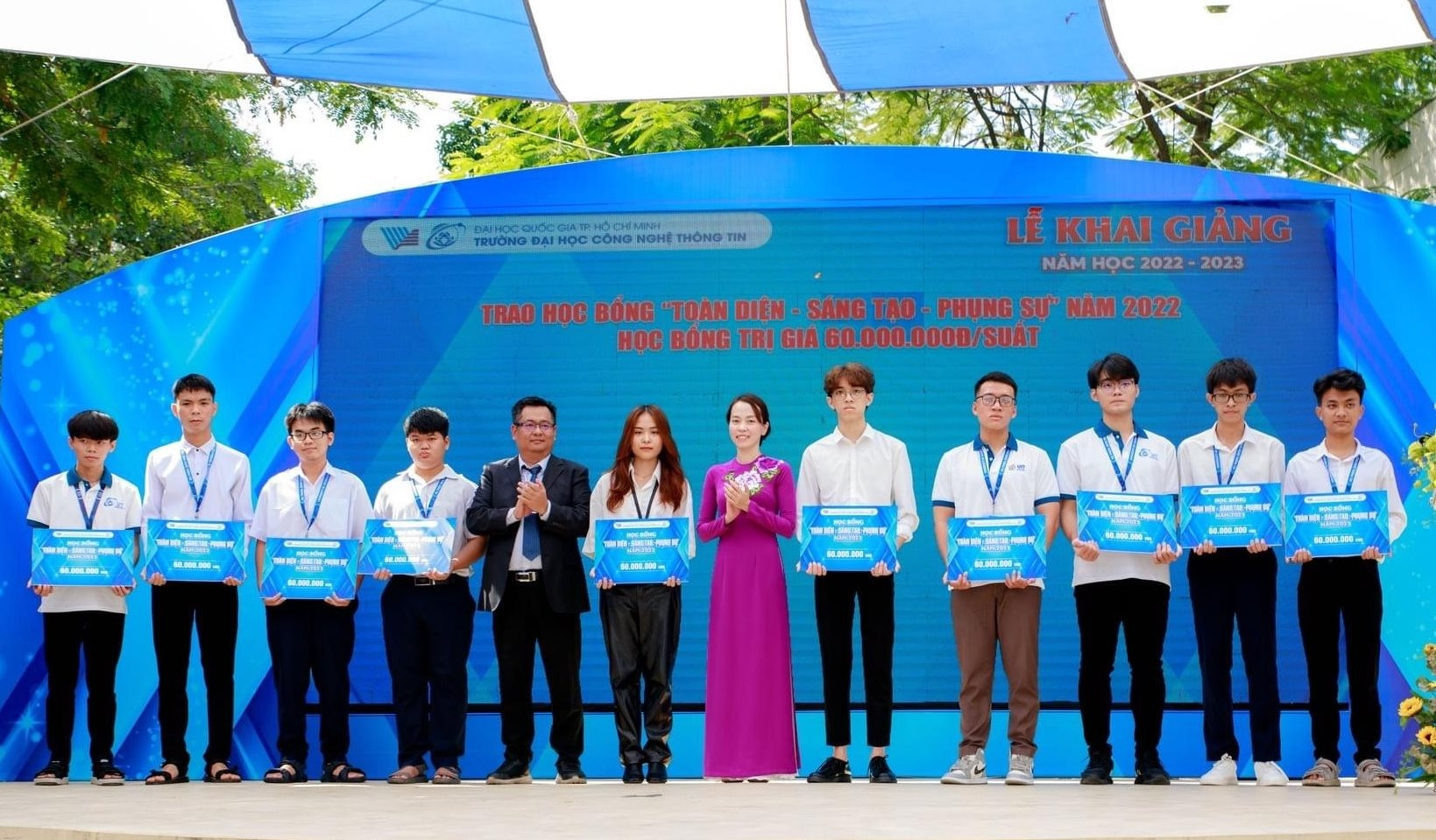
Assoc. Prof. Dr. Nguyen Luu Thuy Ngan giving scholarships to students
At UIT, you are involved in the Vietnamese-Japanese Information Technology Bachelor's program. Can you share more about your contributions to this program?
At UIT, we have had the Vietnamese-Japanese Information Technology Bachelor's program since 2018. The program includes Japanese language reinforcement, Japanese working culture, and some specialized courses taught in Japanese. Graduates of this program aim to work in accordance with the standards of Japanese companies. I contributed a bit to the program by helping build the curriculum, inviting Japanese professors to teach, introducing research to faculty and students, and sharing my experiences with students.
As a female scientist in the field of IT, what advantages and challenges do you see for women in science? What is the secret to success and overcoming these challenges?
I believe female scientists have the advantage of empathizing with social issues and needs related to women and children, which can lead to research ideas addressing those needs. The challenge is that having and taking care of children can reduce the time that women can dedicate to their work.
My secret to overcoming challenges is to do my best within my capabilities, find the true meaning in my work as motivation. The most significant meaning in my current work is educating the younger generation.
Thank you for sharing your insights, Assoc. Prof. Dr. Nguyen Luu Thuy Ngan!
Assoc. Prof. Dr. Nguyen Luu Thuy Ngan, 43 years old, native of Dong Nai province. She graduated with a Bachelor's degree in Information Technology, specializing in Knowledge Technology, in 2003 from the University of Natural Sciences - Ho Chi Minh City. She earned her Master's degree in Computer Science in 2008 and her Ph.D. in Computer Science in 2012 at the Graduate School of Information Science and Technology, the University of Tokyo, Japan. In 2023, she met the criteria for the title of Associate Professor. She has published 87 scientific papers, including 13 in prestigious international journals (being the main author of 8 papers in reputable international journals). She successfully led two national-level research projects and two grassroots-level projects, as well as supervised 14 graduate students who successfully defended their theses.
"In a brief comment about Assoc. Prof. Dr. Nguyen Luu Thuy Ngan, I can summarize her with three adjectives: strong, dynamic, and feminine. Besides her excellent expertise, teaching, and research skills, Ngan is someone who dares to think, take action, is decisive, and takes responsibility. She is dynamic, creative in solving problems, willing to step forward to overcome challenges and obstacles. She is also very flexible, adaptable in communication, and applies her femininity to resolve conflicts. Ngan is affectionately called the 'queen' of the university, the 'rose' of the IT community.
In her role as Vice President of UIT, Assoc. Prof. Dr. Nguyen Luu Thuy Ngan is in charge of various areas, including undergraduate education, lower-level education, organizing admissions and selections, and special programs under the Special Programs Office. The university's educational activities prioritize students, and Ngan closely monitors and analyzes the training results to propose and implement solutions, such as enhancing on-time graduation rates or reducing dropout rates."
Assoc. Prof. Dr. Nguyen Hoang Tu Anh, President of University of Information Technology.
For more details, visit: https://khoahocphothong.vn/pgs-ts-nguyen-luu-thuy-ngan-lay-y-nghia-dich-...
Ha Bang - Media Collaborator, University of Information Technology
Nhat Hien - Translation Collaborator, University of Information Technology

